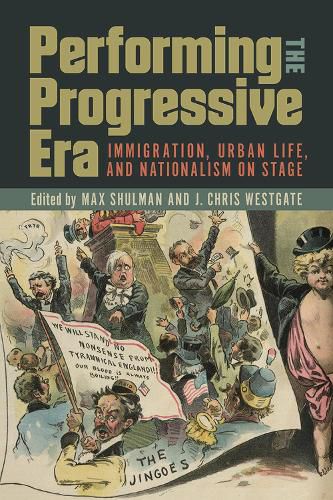Readings Newsletter
Become a Readings Member to make your shopping experience even easier.
Sign in or sign up for free!
You’re not far away from qualifying for FREE standard shipping within Australia
You’ve qualified for FREE standard shipping within Australia
The cart is loading…






The American Progressive Era, which spanned from the 1880s to the 1920s, is generally regarded as a dynamic period of political reform and social activism. In Performing the Progressive Era, editors Max Shulman and Chris Westgate bring together top scholars in nineteenth- and twentieth-century theatre studies to examine the burst of diverse performance venues and styles of the time, revealing how they shaped national narratives surrounding immigration and urban life. Contributors analyze performances in urban centers (New York, Chicago, Cleveland) in comedy shows, melodramas, Broadway shows, operas, and others. They pay special attention to performances by and for those outside mainstream society: immigrants, the working-class, and bohemians, to name a few. Showcasing both lesser-known and famous productions, the essayists argue that the explosion of performance helped bring the Progressive Era into being, and defined its legacy in terms of gender, ethnicity, immigration, and even medical ethics.
$9.00 standard shipping within Australia
FREE standard shipping within Australia for orders over $100.00
Express & International shipping calculated at checkout
The American Progressive Era, which spanned from the 1880s to the 1920s, is generally regarded as a dynamic period of political reform and social activism. In Performing the Progressive Era, editors Max Shulman and Chris Westgate bring together top scholars in nineteenth- and twentieth-century theatre studies to examine the burst of diverse performance venues and styles of the time, revealing how they shaped national narratives surrounding immigration and urban life. Contributors analyze performances in urban centers (New York, Chicago, Cleveland) in comedy shows, melodramas, Broadway shows, operas, and others. They pay special attention to performances by and for those outside mainstream society: immigrants, the working-class, and bohemians, to name a few. Showcasing both lesser-known and famous productions, the essayists argue that the explosion of performance helped bring the Progressive Era into being, and defined its legacy in terms of gender, ethnicity, immigration, and even medical ethics.